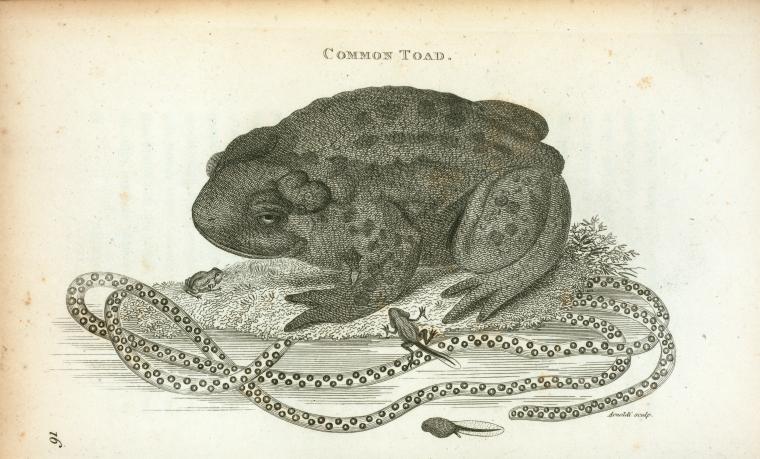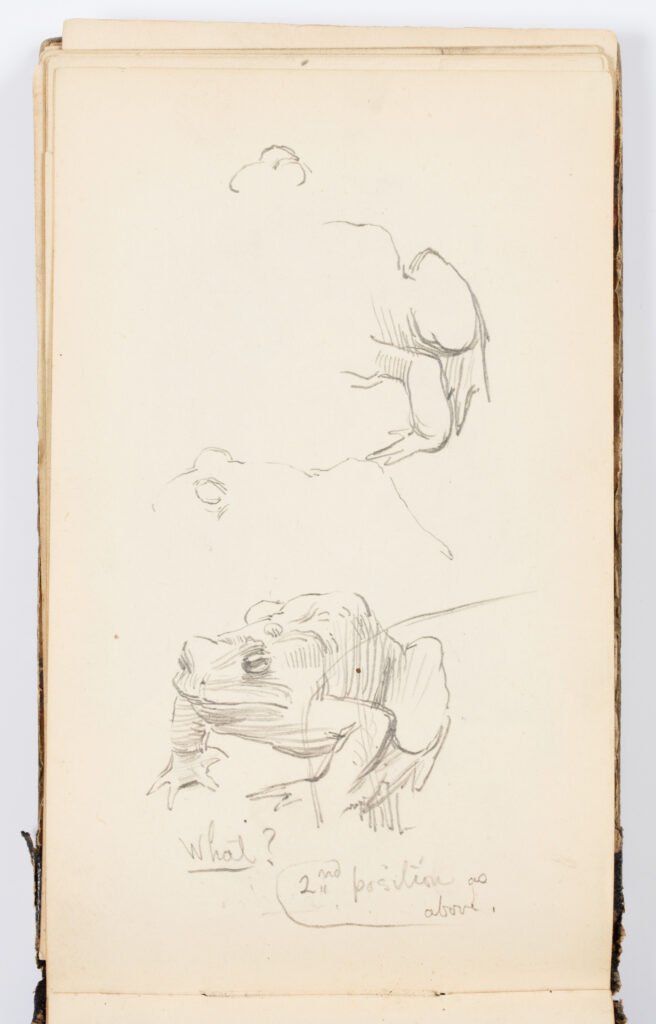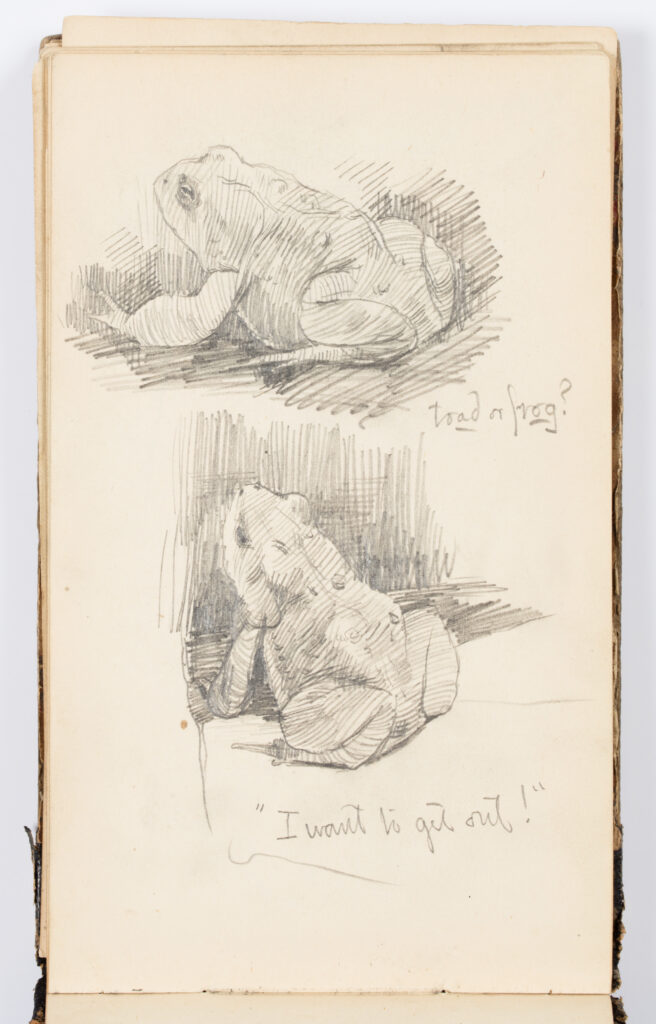A Toad
By Elizabeth Akers Allen
Annotations by josh benjamin

CLOSE by the basement door-step, A representative toad Has made, all the sultry summer, His quiet and cool abode; And the way he bumps and bounces About on the area stones, Would break every bone in his body, Except that he has no bones. When a man is cringing and abject, And fawns for a selfish end, Why they should call him a toady What mortal can comprehend? Since for resolute independence, Despising the courtier’s code, And freedom from mean ambitions, There's nobody like the toad.

paper, 1875, Cooper Hewitt Smithsonian Design
Museum, Washington, D.C.
I know how strongly against him Some popular whimsies go; But the toad is never vicious, Nor silly, nor stupid, nor slow. Stupid? Perhaps you never Noticed his jewel eyes? Slow? or his tongue’s red lightning Striking the darting flies? Oh, but the mouth he carries To make its dimensions clear, One longs to describe it briefly, As reaching from ear to ear; But that no Professor of reptiles Is able, (so far as appears In books upon kindred subjects) To locate batrachian ears. No matter how stern and solemn The markings about his eyes, The width of his mouth preserves him From wearing too grave a guise; It gives him the look (no matter How sad he may be the while Or deep in profound abstraction) Of smiling a chronic smile.
His ponderous locomotion, Though brimful of nerve and force, And well enough here in the area, Would n’t do for a trotting-course; Too modest to run for Congress, Too honest for Wall street's strife, His principles all unfit him For aught but a virtuous life. A hole in the ground contents him,— So little he asks of fate; Philosopher under a dock-leaf, He sits like a king in state. Should a heedless footstep mash him, In gravel absorbed and blent, He never complains or grumbles, He knows it was accident.
No drudging scribe in a sanctum, No writer of prose or rhyme, Gets through with so much hard thinking In the course of a summer-time; And if sometimes he jumps at conclusions, He does it with accurate aim And after mature reflection,— Would all of us did the same! But what will he do this winter, In the wind and snow and hail, With his poor soft, unclad body Unsheltered by wings or tail? He cannot go south, poor fellow, In search of a milder air, For spring would be back triumphant, Before he was half-way there! But what are his plans for the future, Or where he intends to go, Or what he is weighing and planning, Are things we shall never know, He winks if you ask him a question, And keeps his own counsel well; For in fact, like the needy knife-grinder, He has never a story to tell!

paper, 1875, Cooper Hewitt Smithsonian Design
Museum, Washington, D.C.
Allen, Elizabeth Akers. “A Toad.” St. Nicholas 1, no. 9 (July 1874): 544.
Contexts
The same year as St. Nicholas published this poem, Allen moved back to her home state of Maine to work as the literary editor for the Portland Daily Advertiser. Allen was already an established and successful poet, having published her first collection, Forest Buds From the Woods of Maine, in 1856. Allen was also a member of Sorosis, a professional women’s club that included poets Alice and Phoebe Cary, many other authors, and women from a wide range of professions. She published more poetry before her time in Portland and would continue until her final collection in 1902, The Sunset Song and Other Verses. Her poem in the Saturday Evening Post, “Rock Me to Sleep, Mother,” became famous as a poem and set to music as a Civil War song.
Definitions from Oxford English Dictionary
abject: Cast off, rejected; cast out, expelled; of low repute; despicable, wretched; self-abasing, servile, obsequious.
batrachian: Of or pertaining to the Batrachia, esp. frogs and toads.
blent: Mingled.
toady: A servile parasite; a sycophant, an interested flatterer; also, a humble dependant.
whimsies (whimsy): Senses relating to playfulness and caprice.
Resources for Further Study
- Brittanica’s overview of the toad
- Reptiles magazine’s article on toads of the U.S.
- The Smithsonian’s reasons not to kiss a toad
Contemporary Connections
Amphibian populations, including toads, are in decline worldwide, which led to the U.S. Fish and Wildlife Service’s Amphibians in Decline Initiative to fund conservation projects from 2010 to 2015. The IUCN Redlist details which toad species are endangered, vulnerable, or threatened and how their populations are trending.